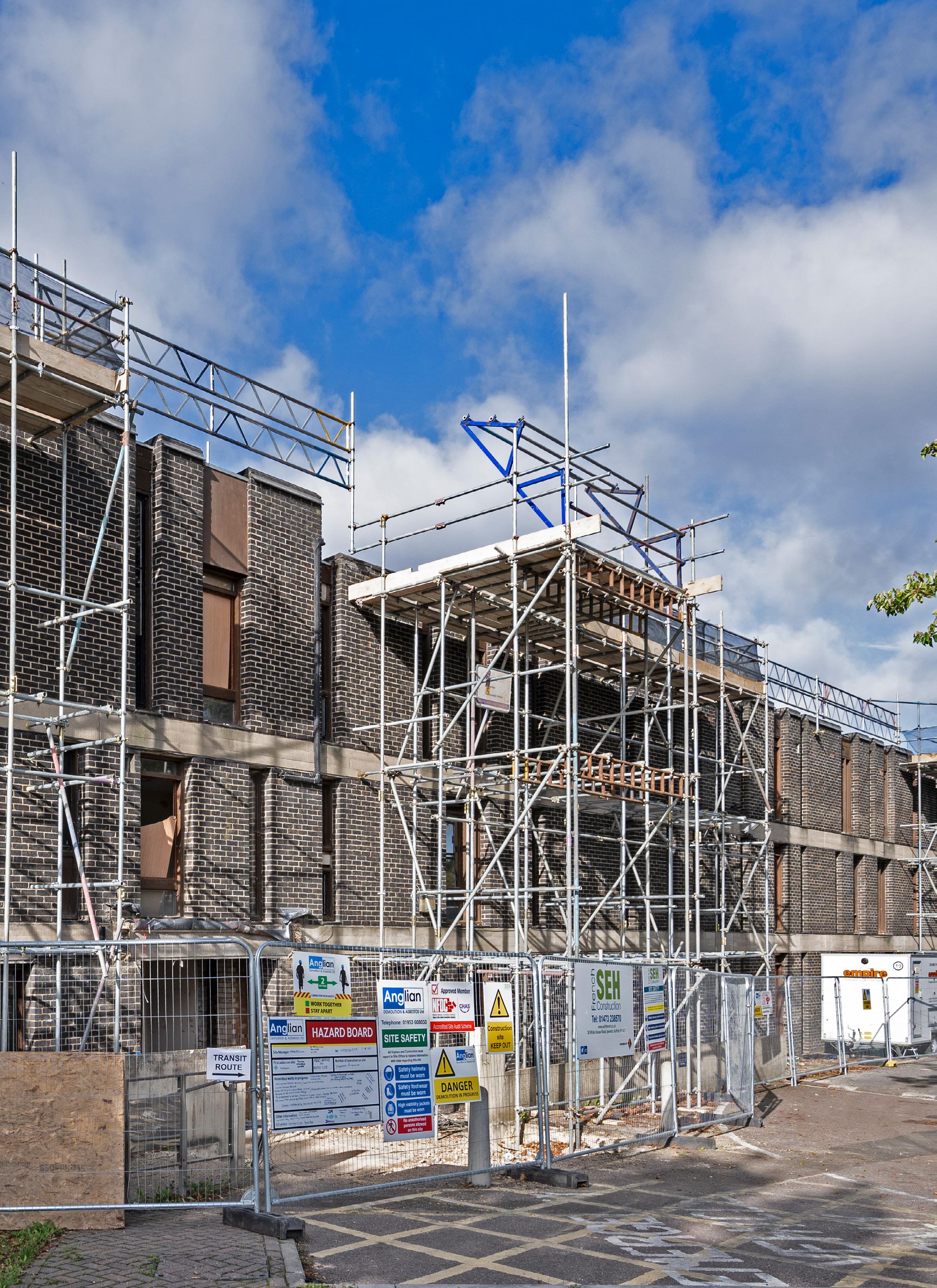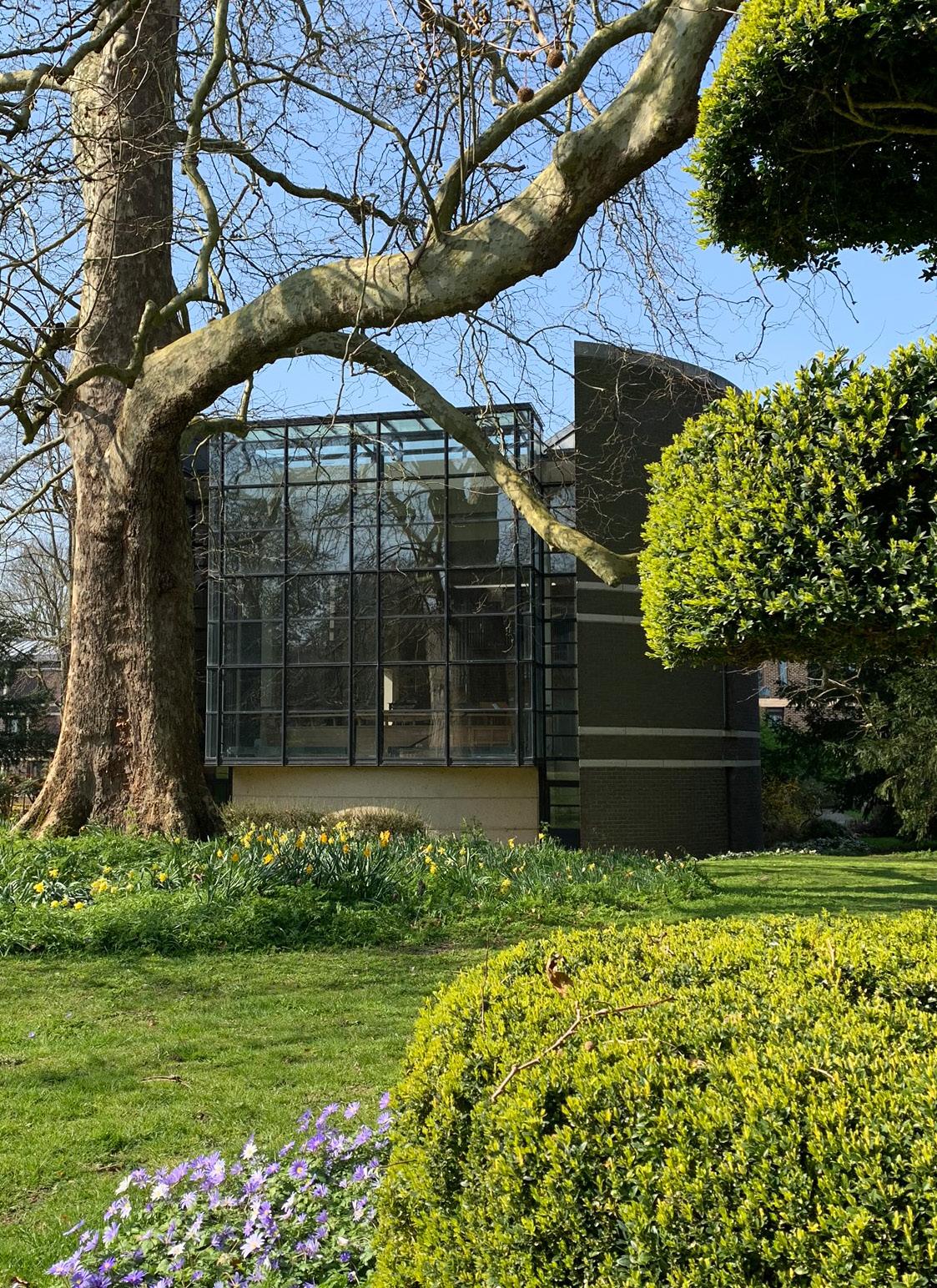
6 minute read
FROM THE BURSAR
12
I am pleased to write my first set of Bursar’s notes, having succeeded Andrew Powell at the beginning of October 2020. I am immensely grateful to Andrew, not only for the skill and care in which he steered the College’s finances for some 11 years but also for the extensive handover I received. The warm and opening welcome I have had from all elements of the College community and the superb support from colleagues across the College have enabled me to settle in and left me with a sense that I have been here longer than just a few months.
I come to the role of Bursar with over 30 years experience in finance and business. I have a background in corporate finance, working for a number of international banks, before founding a financial advisory company in the early 2000s. I have a good knowledge of Cambridge, having lived here since I was an undergraduate studying Architecture at St Catharine’s College in the mid 1980s. That knowledge is reinforced through my involvement in local politics and as a trustee of a local homeless charity. As a result, I have some visibility of the workings of the University and collegiate Cambridge (my wife is an academic) but I still have a lot to learn.
FIRST IMPRESSIONS
Michaelmas Term 2020 has gone so quickly, just as terms tended to do when I was an undergraduate. Overlaid on the natural cycle of term activity has been the ongoing management of the pandemic. It has required us to be nimble and creative across all aspects of College life. I have been fortunate to benefit from the experience of a group of colleagues who had navigated their way through the first chapter of the pandemic. It is clear to me that in tackling the impact of the pandemic we as a community have benefitted immensely from our transparent governance and strong culture.
The challenges for the College in Michaelmas Term were similar but different from the ones we faced earlier in the year. Whilst in the first lockdown, the majority of students went home, in the lockdown in November the student population remained in residence. The Term saw the erection of a marquee on Fellows’ Court, to provide a much-needed outdoor space for all members of the community. New practices have also emerged, such as the weekly asymptomatic testing for students and the socially-distanced formal halls. Our students have enthusiastically embraced the different living environment the pandemic has forced upon us, such as making the most of our outdoor spaces for student events even when the weather was inclement.
Our staff, who are the glue that ensure our community runs smoothly, have stepped up to the challenges the pandemic has caused. As they have in the past, they have gone the ‘extra mile’ during term to ensure that College life is as normal as can be for all members of our community.
FINANCE AND INVESTMENTS
The year was one of two parts, with a clear divide when the COVID-19 pandemic broke in March.
In November 2019, the Governing Body approved the adoption of new investment principles prioritising environmental, social and governance behaviour as part of its ongoing commitment to sustainability (ESG). The College had not invested directly in high impact fossil fuels, tobacco manufacturers, or weapons manufacturers since 2016, and the formal adoption of ESG principles at the heart of the College’s investment policy, marks an important consolidation. Indirect investments in these areas will now be minimised and kept under constant review. The adoption of these principles was the outcome of a College-wide consultation led by the Investment Committee over a number of months, but also including open meetings with students and the Fellowship.

Up to the end of March, the College was forecasting a small deficit for the year, but by the end of the year recorded an operating deficit of £973,000, the highest in our history (before taking account of ‘one-off’ items). The pandemic had a material impact on our finances for the year. Our income fell mainly due to the College losing rents from students and catering income for Easter Term as we operated on a largely virtual basis and also because we were unable to undertake conference activity during the summer period. In response, we took steps to reduce our costs. In addition to specific cost control measures, such as a staff hiring freeze and no payment of the staff discretionary bonus, we benefitted from a number of natural efficiencies as a result the lower level of activity in Easter Term and through the summer.
The impact on our finances also extended to the value of our endowment, which for the first time in a number of years fell. This was due to a combination of the volatile performance of our investments as the financial markets were affected by the pandemic and because we were not able to sustain the level of annual contribution to the endowment. It is clear that the ongoing pandemic will put further major strain on our finances over the next 12 to 18 months. Our sources of income will continue to be under immense pressure as we have seen at the start of Lent term 2021, with the loss of rental and catering income arising from the national lockdown. It is also unlikely that our conference activity will return to its historical levels for at least two to three years. As a result, we will need to rely more heavily on other sources of income, in particular the generosity of alumni through donations. We will also need to ensure that we look for further efficiencies in the way the College manages its finances. We were delighted to contribute over 200 meals to local charity Cambridge Sustainable Food in Michaelmas.

BUILDINGS
Whilst at its core the College is about a community of fellows, students, staff and alumni, the buildings and grounds in which we live, work and socialise are an important component in shaping the character of our community.
Despite the challenges of the pandemic, we have maintained the momentum of investing in the fabric of our buildings. In the early part of 2020, we took the decision to undertake the extensive refurbishment of D, E and F staircases, at a cost of approximately £5 million. The scheme not only involves bringing up to modern standards much-loved architecture, but also will result in visual changes to the College’s façade facing Huntingdon Road through the creation of a number of bays. Internally, the space has been reconfigured providing modern student rooms and creating a series of communal kitchens that allow students to come together more easily in a relaxed environment. This arrangement has proved to be really popular in the refurbished A, B and C staircases.
The work of D, E and F highlights the fact that a significant part of the original College fabric (now some 60 years old) still needs fundamental refurbishment, so we are able to offer accommodation appropriate for a modern twenty-first century college community.
Rod Cantrill
Bursar 13
14

RECONSTRUCTION WORK BEGINS ON THE HUNTINGDON ROAD FAÇADE
15

Photograph: Dr J. R. A. Cleaver
16

For all those in College during the first lockdown, the gardens provided a welcome respite from the challenges. Photo: Bluebell Drummond








